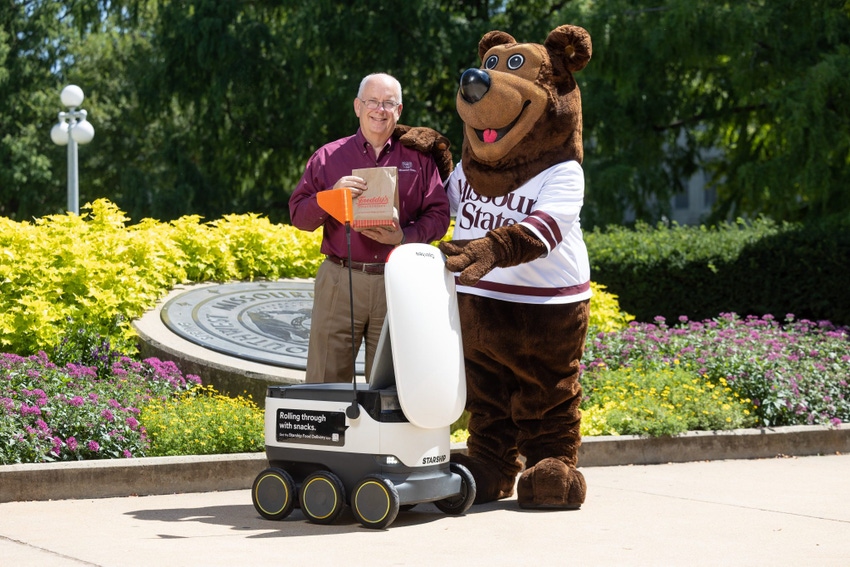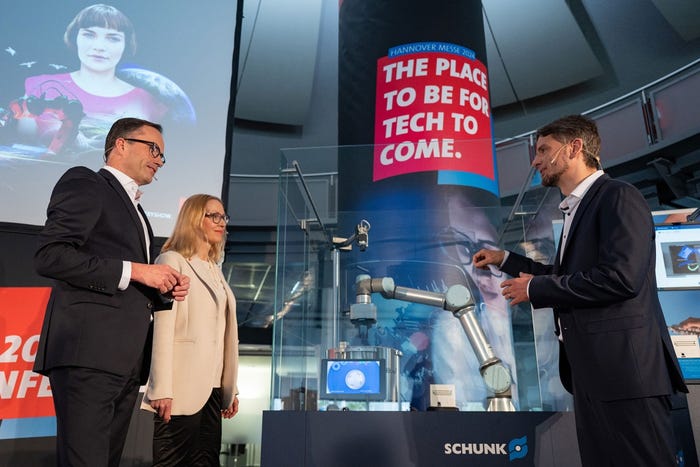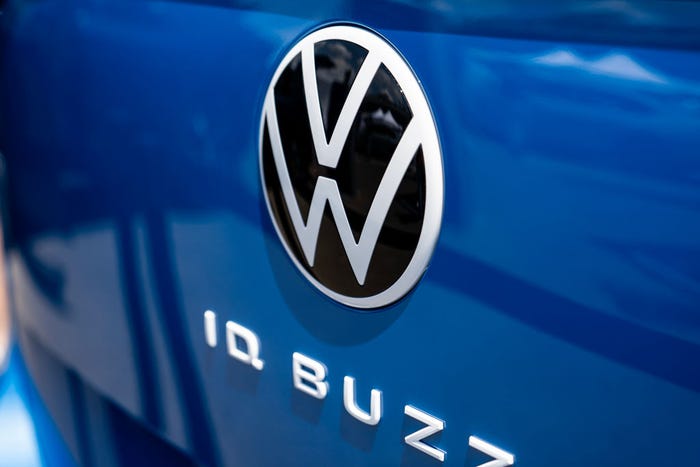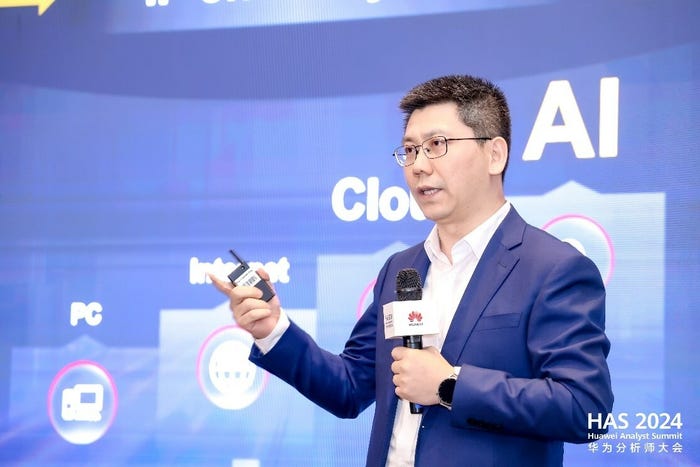Starship Technologies’ autonomous, on-demand robots have already been successfully deployed at campuses across the country

Starship Technologies’ fleet of food delivery service robots is settling in at Missouri State University, where students and staff can now order food for delivery from the 20 autonomous, on-demand robots.
The initiative is being conducted in collaboration with Chartwells Higher Education and marks the first rollout of this service at a Missouri university.
“I think the robots will be a huge hit on campus,” said Dee Siscoe, vice president for student affairs at the university. “Our campus community will be able to receive food and drinks in a fun, fast and innovative new way!”
Several on-campus cafes and restaurants are collaborating with Starship for the initiative, including Einstein Bros. Bagels, Panda Express and Subway, with Market Café 1905 set to be added soon. A Starship Food Delivery app is available for users to order food and drinks from their phone, as well as unlock the robot when it arrives. The service is expected to soon be made compatible with student meal plan dining dollars.
“We’re excited to start the new school year by expanding our services to Missouri,” said Chris Neider, director of business development at Starship Technologies. “We think the students will quickly see the advantages of contactless delivery and enjoy having the robots become part of the campus community.”
Starship has already seen successful deployment of its robotic deliveries at university campuses in Texas, Utah and Idaho. The response has been so positive the company has increased the number of robots, as well as extended its hours of operation.
The small wheeled robots have also themselves proven popular with the students, with a survey showing a majority of students say “thank you” and “excuse me” to the robots, which were designed to be approachable and friendly.
The zero-emission robots can carry the equivalent of about three shopping bags of produce each, and use a combination of sensor technology and machine learning to navigate obstacles and pathways to deliver their goods safely in any weather.
The initiative joins a trend of using robotic assistants to ease pressure on staff shortages in the hospitality industry, providing round-the-clock service to those in typically antisocial working hours, such as students and medical professionals.
About the Author(s)
You May Also Like





.png?width=300&auto=webp&quality=80&disable=upscale)


.png?width=300&auto=webp&quality=80&disable=upscale)